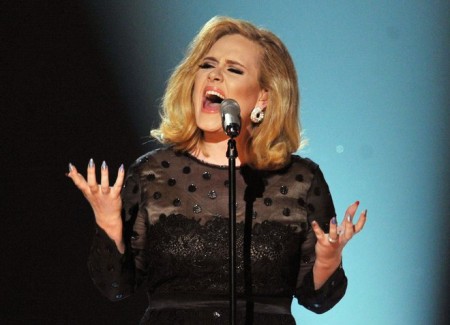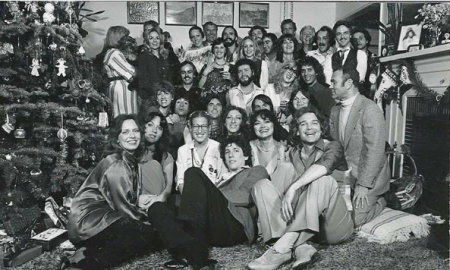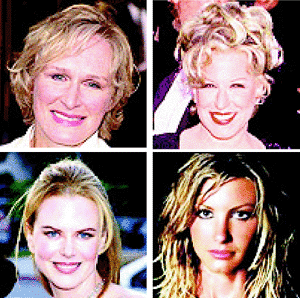BorneoPost
Face-to-face
by Dunstan Chan. Posted on May 22, 2011, Sunday
”˜FROM a distance’ is a song written by American singer-songwriter Julie Gold and made famous by Bette Midler in 1990. It paints a picture of a world in harmony from a distance but laments the fact that up close we seem to be always at war. The lyrics in parts read:
UNITY IN DIVERSITY: Celerating the beauty of friendship.
“From a distance the world looks blue and green, and the snow-capped mountains white.
From a distance the ocean meets the stream, and the eagle takes to flight.
. . . and there are no guns, no bombs, and no disease, no hungry mouths to feed.
. . . from a distance you look like my friend, even though we are at war.
From a distance I just cannot comprehend
what all this fighting is for.”
At first glance I quite agree with the view expressed. Recently, a friend emailed me a slideshow of images of the earth taken from high altitude. It was a picture of tranquility, of gentle blue and green.
However, when I take a peak at the international news things don’t look that rosy. It seems that world is in a perpetual state of strives and wars. Indeed, the world looks a pretty bleak place viewed through the pages of the newspapers and from the screen of the television. So, we can all empathise with the statement “. . . I just cannot comprehend what all this fighting is for.”
I am reminded of the story of a young man who pleaded plaintively.
“God, this world is full strives, wars and iniquities. Why don’t you send someone to do something about it?”
“I did,” said God. “I . . .” If you want to know whom God sent, you have to read to the end of this article. First let me take you on a detour.
Recently, I attend a World Thalassaemia Conference in Turkey. Thalassaemia is a genetic blood disorder whereby the body cannot produce sufficient healthy red blood cells. In its severe form the patients need regular blood transfusion and that in turn results in an increase of iron in the body, which if untreated can prove fatal. The treatment is complicated and expensive. Though this medical condition originated in the Mediterranean region, it has over the millennia spread to other parts of the world. Thus, in this conference I got to meet people of various races and creeds from many countries. It was an eye opener in more ways than one.
Firstly, it was brought home to me pointedly that disease knows no racial borders. This realisation is timely reminder to me that God poses life challenges (and indeed, grant blessings) to all of us, irrespective of race or religion. A fact I need reminding because I live in a country where the authorities take great pains to emphasise the racial and religious difference of the diverse ethnic groups living within its domain.
At the conference I met Professor Dagan and his two patients, the brothers Ali and Ahmed. The professor is the Chairman of the Israeli Thalassaemia Association, which has as its members over 400 patients; over 50 per cent of them are Muslim. The professor is a Jew.
One evening I also shared a dinner table with four doctors. We had a great time sharing ”“ talking about our experiences, our hopes, aspirations and challenges. In short we talked about life. I found them to be pretty much same as the many people I know here at home. Drs Soheila, Zareifar, Mehran and Mohammad Reza are from Iran.
Wait a minute! Something is not right here. From I what I gather from the mainstream media I thought the Jews and the Muslims hate each other and seem hold the view that each can only exist at the exclusion of the other. Yet looking at Professor Dagan, Ali and Ahmed one would have thought that they are a father and sons group. And what about the Iranians? My image of people from that part of the world is that of mass rallies of fist clenching, froth- in-the-mouths slogan chanting mob.
So really, what do we know about Iraq, Iran, Israel, China, Tibet, Kashmir, etc.? Some of us may have the good fortune to visit many countries and gain a glimpse of the people and life there. However, our perception of the world is largely shaped by the one-eyed monster that resides in every home and also by the print media. And it is not just our perception of the world but also of our own home and people that can be so influenced
In Malaysia, the antics of a particular sick man have been given national coverage. He professes to be the adherent to a world religion, a religion of peace and sublime values. Yet he is going the country (well, at least in the Peninsular Malaysia) preaching hatred for people of another race and creed. He would have been just been given short shrift by all and be regarded as a mere idiot, albeit a dangerous one, for spewing such bigoted views.
Unfortunately, this racist seems to have the backing of an elderly politician who at one time was held in great respect by the country. This old man has given the lie to the belief that as one ages, one mellows and becomes wiser. Instead he has proven to be the opposite, growing more stridently aggressive, reckless and bigoted, as he gets older. Together this diabolic duo is prepared to risk pushing our peaceful country – peaceful and harmonious despite our cultural diversities – into communal conflict.
So again the song haunts us, “. . . you look like my friend . . . I just cannot comprehend what all this fighting is for.”
Now it’s time to go back to the story above.
God said, “I did send someone. I sent you.”
“Huh? Me? But the world is so big and I am so small.”
“Yes, I sent you. You and all the ”˜yous’ make this world.”
I suppose at this juncture you expect me to pronounce à la President Obama “Be the change you want to see”. But no! This weekend I am attending a convention that draws participants from Indonesia, Brunei and Malaysia. At the dazzling Welcome Ceremony I witnessed people of diverse races, religions and cultures coming together celebrating the beauty of friendship. I realised that we don’t to change. We are already being endowed with the capacity for love and kindness.
The songwriter declared that “From a distance you look like my friend . . .” and then she despaired that as we get closer we are at wars. Well, she is only half right. She should get closer, for close up and face-to-face we are friends. We have the capacity for love and the desire for friendship. We are the children of God!
“It’s the hope of hopes, it’s the love of loves.
This is the song of every man. And God is watching us, God is watching us.”








